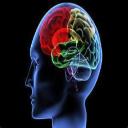Yahoo Answers is shutting down on May 4th, 2021 (Eastern Time) and beginning April 20th, 2021 (Eastern Time) the Yahoo Answers website will be in read-only mode. There will be no changes to other Yahoo properties or services, or your Yahoo account. You can find more information about the Yahoo Answers shutdown and how to download your data on this help page.
Trending News
Is Agnosticism the most realistic view on religion?
Christians and Theists keep saying you can't prove or disprove of God wouldn't that fit the Agnostic view of just saying God's existence is unknown and so are all of the origins and mysteries of the Universe are unknown as well that even Atheists admit that science can't prove all the origins in the Universe or what started the Earth and life on earth. Albert Einstein described himself as an Agnostic and just a religious Skeptic not a Atheist. Atheism like Theism requires faith and belief, Agnosticism is based on knowledge.
10 Answers
- Mr. SmartypantsLv 74 months agoFavorite Answer
What I've been saying is that agnosticism is the most logically defensible position since, as you point out, nobody really can know. At the very least, a bit of agnosticism will protect people from confusing 'belief' with 'knowledge'. This is a mistake I see on both sides but especially from theists.
I have always believed any belief system must include at least a little bit of skepticism, of doubt. Fundamentalism of any variety seems to insist that people squash their skepticism, deny it, never think about it or feed it. Where salvation depends on belief, skepticism is seen as -EVIL-. I just think that's not the way I'd want to arrange my mind.
- Special EPhexLv 74 months ago
No. God is accepted, or not, on the convictions of our beliefs, not "knowledge". . Were it able to know all there is to possibly know, the concept of 'faith' would not exist. All knowledge and human sense of knowingness is, fundamentally, rooted in the faith that it is reliable to follow by. Agnosticism implies that one is 'unsure' and 'uncertain' about, 'what to believe'.
It is a common mistake to presume 'faith' (in religion) means "knowledge", much in the same way people mistake 'theory' (in science) to mean "universal law", to refute the big bang or evolution. There are many things people accept without "proof or evidence" ("Michael Jordan is the greatest of all time, over Lebron James"). An agnostic is aware that they cannot make a judgement or determination, one way or the other.
Einstein was actually as deist, and is quoted saying he "doesn't believe in a God that 'interferes', but a God that is expressed as the laws of the universe" (see Walter Isaacson's biography of Einstein). Everyone holds their beliefs (or lack thereof) on the conviction that they're correct, including agnostics. This idea of imposing "intellectualism" on the discussion on faith, as a "knowledge-based" discussion, is not operating out of 'intellectual honesty', nor very knowledgeable.
- DavidLv 74 months ago
Agnostic is not an ontological claim it is a epistemological claim and so falls into a completely different category.
The atheists who forward the notion that God vs. Evolution is a valid dichotomy are obviously confused. God is an ontological entity, evolution is a natural process, and they are not even in the same category, akin to asking do you believe in yellow or poetry.
You're part of the “I Can’t Know” religion. You believe no one has the only truth, probably also believe there are no absolutes, not realizing you're committing what's called a "logical fallacy." When you state that you "can't know," you are insisting that you yourself know that a person "can't know."
This is the same fallacy as the Unitarian church saying “no one has the only truth.” Or like the person who once told me that there are no absolutes—which, as I pointed out to him, was an absolute statement!
You use this fallacy so that you can determine whatever truth you want to believe--evolutionary atheism (and agnosticism) is a position of faith, espousing an interpretation of the past based on untestable belief; both are "religions" of a sort.
The “Can’t Know” religion destroys lives, leaving people with no purpose and meaning. It is illogical and ignores the facts of both science and Scripture. It is a rebel’s refuge most frequently disguised in intellectualism. The next step is the illogical, irrational, and unsupportable position of atheism.
Every child by the age of 4 or 5 years is a creationist.. Not because of any indoctrination, just because of ordinary play.. Playing with blocks to build a house, sand castles on the beach, a fort in the back yard, using a bed sheet to make a tent...
By these simple play activities children at that young age intuitive understand the concept of creation... They may not be able to state it in pure scientific terms, but they get it.
That creation deniers don't get it when a 4 or 5 year old does get should be a source of embarrassment! Seriously the average 5 years old has a better grasp of reality than the atheist does! ROFL
I have shown how the average five year old knows intuitively that God is. It takes years of indoctrination by the Government School System and the mass media to drive this understanding out of a minority. .
Lest we forget that the majority of those who convert to atheism do it between the ages of 12 and 15, the rebellious teen years, when the areas of their brain that deal with critical thinking, understanding long and short term consequences and impulse control have not yet fully developed.
Of that small percentage (about 20% of those enrolled in the Public School System) about 70 to 80% will convert back to theism as adults when their brains have been fully developed and they have lived in the real world for a while..
Notice the pattern, teens who's brains are not yet developed to the point they can make an informed decision convert from theism to atheism. Adults with fully developed brains and experience in the real word convert from atheism to theism.. That alone sends a pretty powerful message.
The atheist or agnostic must deny, evade, and ignore universal law to establish their non-position. Thousands of experiments, and all of the recently gained knowledge of molecular biology and genetics, have only served to strengthen the most fundamental law of biology, laid down by Virchow over a century ago: 'omni cellules e cellules' (all cells come from other cells), also known as the Law of Biogenesis. Life only comes from life. This was the law established by the Author of Life.
Without empirical evidence, abiogenesis is just a story. If and when scientists actually do produce life from non-life in the lab the only thing they will have succeeded in doing is demonstrating life as a product of intelligent design... Which is exactly what the theists have been saying all along!
It’s easy to be an atheist or agnostic if you evade, ignore and deny operational science and the Bible, but it only leaves you with loads of ignorance, obdurate and vacuous. It's why you're so arbitrary, irrational, illogical and whimsically unsupportable.
Hold a real book in your hands and learn something, confirm something, own a fact, it washes away the arbitrary, immature "I don't know" excuse of every child.
You aren't even aware that "I don't know" is an invalid response here and violates the TOS. Trying to belong somewhere, or fit in w/o a position other than reductionism, where/when anyone/everyone can delete you? Square pegs of wrong thinking don't fit in a round hole, let alone the eye of the needle of truth; never will no matter how hard you try. You dismiss yourself with an errant or unsupported statement disguised as a question; abuse of forum format. Your view of things isn't very "realistic" at all, having confirmed nothing. Fence sitting is the lazy way out.
For an agnostic, university molecular biologist’s strictly scientific evaluation of evolution, see Michael Denton’s Evolution: A Theory in Crisis (particularly chapter 10).
You just don't have any evidence for what you believe.
Eight Evidences for a Young Earth (outside the Bible)
Five Evidences of Noah’s Flood
A dozen evidences against evolution
10 Problems with Big Bang
Fossil Evidence
Bible Accuracy
- How do you think about the answers? You can sign in to vote the answer.
- PaulLv 74 months ago
How can "not knowing" something (which is what "agnostic" means) be "realistic??
- Anonymous4 months ago
No. Once you take into account that it is undisputed that humans have made up gods (Osiris, Neptune, Quetzalcoatl, etc) and the fact that there is no evidence for any gods, atheism is the most realistic view.
- Reynaldo WeeksLv 44 months ago
If you think Agnosticism is the most realistic view on religion then you must think Santa Claus is the most realistic view on Christmas.
- 4 months ago
I know that God is real because one time I burnt my face on a stove and the burn marks spelled out Sesus, which is one letter away from Jesus. Some people told me it was a coincidence and that I should seek medical attention, but I know it was a sign from the divine.
- Anonymous4 months ago
Not really. Are you agnostic as to whether or not prayer works?
- Anonymous4 months ago
No. It's the fence-sitter view.









